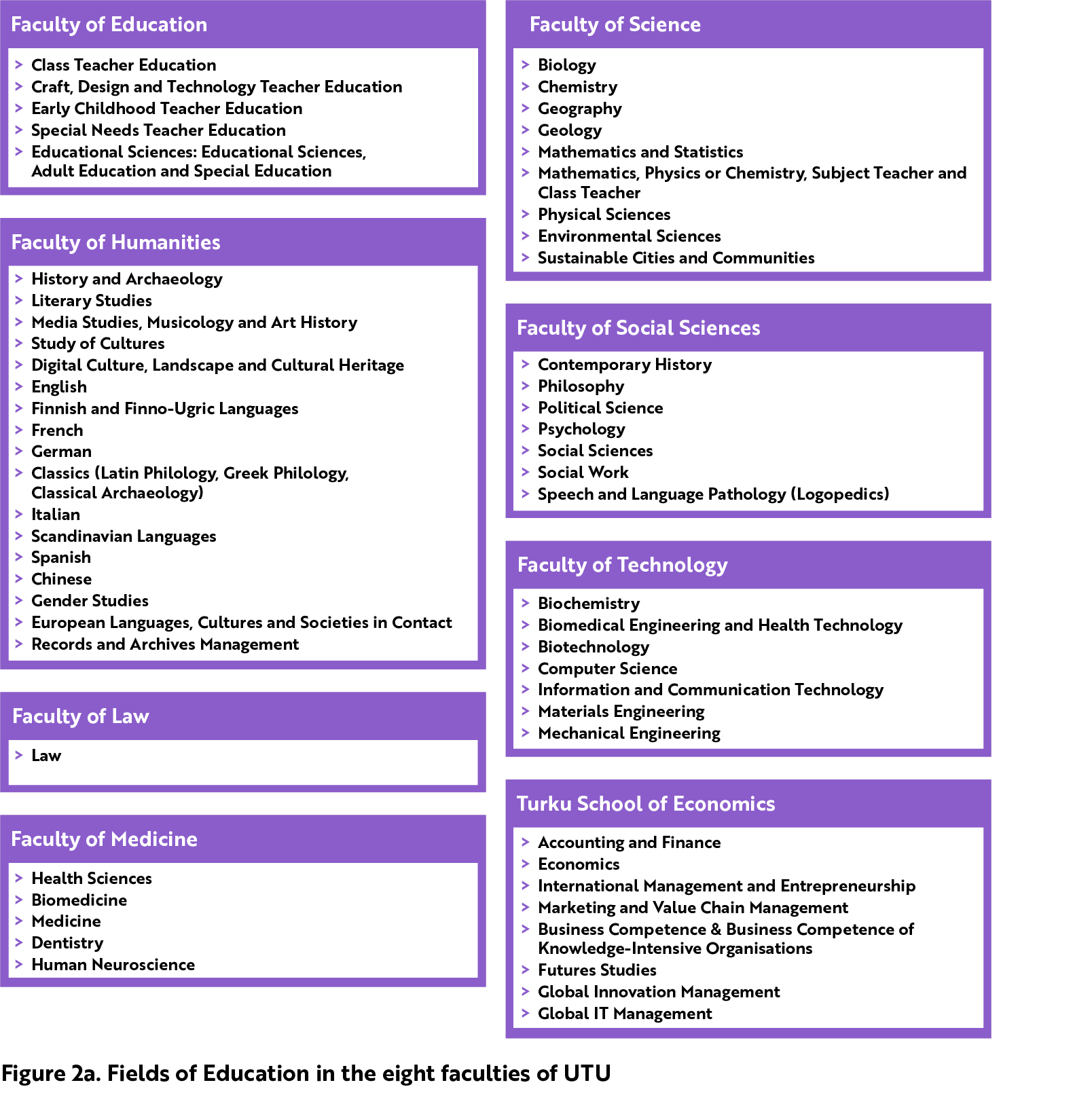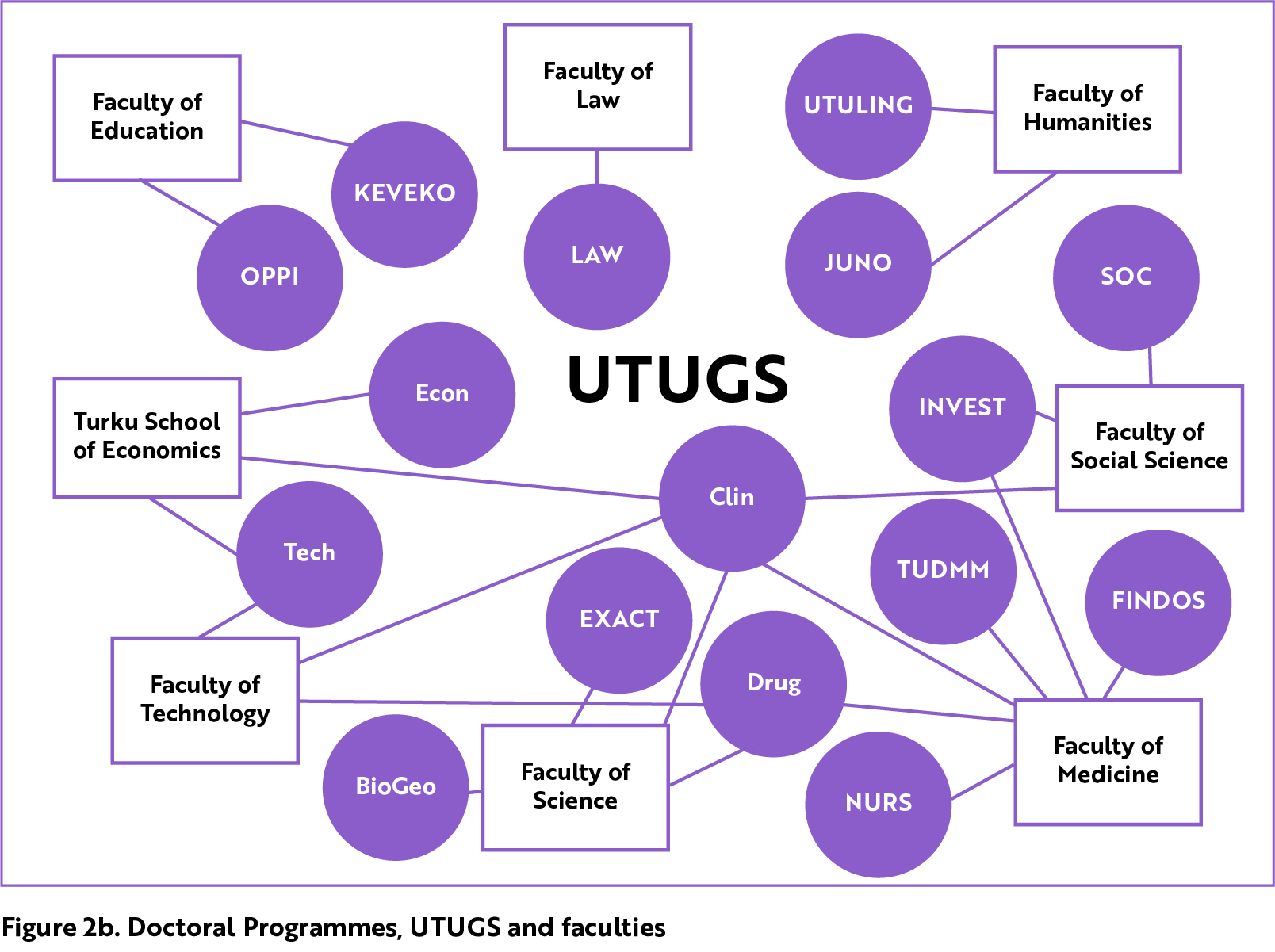The University of Turku (UTU) was established in 1920, although its origins reach as far as the Royal Academy of Turku, founded in 1640. Today, UTU is a multidisciplinary and international research, educational, and cultural community. The basic mission of UTU is to promote free research and academic education, and to provide higher education based on research. In carrying out its missions, UTU promotes societal impact and engagement as well as lifelong learning. When fulfilling its basic mission, UTU acts according to the values, aims and missions listed in its Strategy.
The organisational structure of UTU is described in figure 1. The eight faculties of UTU are divided into departments or other comparable units formed by one or more fields of education and research. In addition to Turku, UTU operates in Rauma and Pori, and has Research Institutes in Kevo and Seili.

There were 22,779 students (of which 7.6% international) and 3,314 staff members (of which 10.7% international) in UTU in 2021. The total number of the degrees awarded per year was 3,914 (UTU Annual Report 2021).
The faculties provide education leading to a degree. There are 50 bachelor’s degree programmes, 60 master’s degree programmes, and 26 international master’s degree programmes in UTU in the fields presented in figure 2a.

Doctoral training is coordinated and organised by the University of Turku Graduate School (UTUGS) together with the faculties. UTUGS consists 16 doctoral programmes which cover all disciplines of UTU. The doctoral programmes are not bound to faculties or departments but can bring together doctoral researchers and supervisors from different fields as shown in figure 2b.

University of Turku – Building a Strong and Sustainable Future
The University Board of UTU approved the Strategy 2030 in December 2019. The Policy Programme that defines the practical targets of implementation was approved in January 2020.
The strategy period is defined by the Ministry of Education and Culture. The Strategy document contains the University’s mission, vision, shared values, underlying themes, and strategic goals for the basic missions, and possible other activities of the University. The strategic profiles of UTU implement and advance multidisciplinary research and education between the faculties. The Policy Programme defines strategy actions in practice, the set goals, and the persons responsible for different actions. The appointed persons are responsible for implementing, monitoring, reporting, and evaluation of actions. The Policy Programme can be complemented and partly renewed if necessary during the strategy period.
